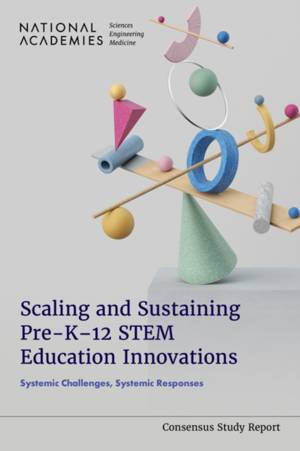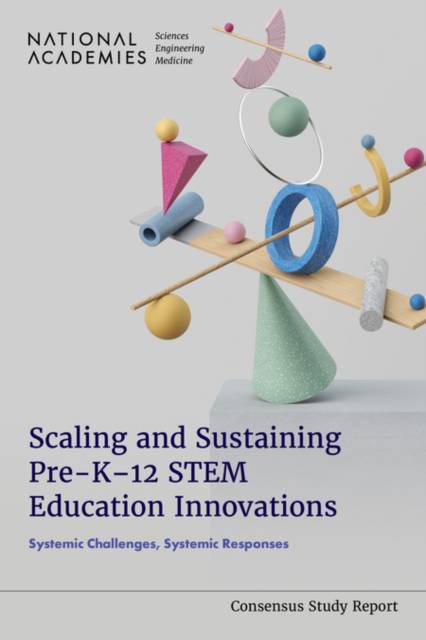
- Retrait gratuit dans votre magasin Club
- 7.000.000 titres dans notre catalogue
- Payer en toute sécurité
- Toujours un magasin près de chez vous
- Retrait gratuit dans votre magasin Club
- 7.000.0000 titres dans notre catalogue
- Payer en toute sécurité
- Toujours un magasin près de chez vous
Scaling and Sustaining Pre-K-12 Stem Education Innovations
Systemic Challenges, Systemic Responses
National Academies of Sciences Engineering and Medicine, Division of Behavioral and Social Sciences and Education, Board on Science Education, Committee on Prek-12 Stem Education InnovationsDescription
In the modern history of the United States, investment in the teaching of science, technology, engineering and mathematics has resulted in a rich variety of education innovations (programs, practices, models, and technologies). Although a number of these innovations have had the potential to impact learners on a broad scale, that potential often remains unrealized. Efforts vary in their success in widescale implementation and sustainability across different educational contexts - leaving questions about how to achieve the major improvements to STEM education that many policy leaders seek.
Scaling and Sustaining Pre-K-12 STEM Education Innovations: Systemic Challenges, Systemic Responses examines the interconnected factors at local, regional, and national levels that foster or hinder the widespread implementation of promising, evidence-based Pre-K-12 STEM education innovations, to identify gaps in the research, and to provide guidance on how to address barriers to implementation. This report comes in response to a mandate within the CHIPS and Science Act of 2022.
Spécifications
Parties prenantes
- Auteur(s) :
- Editeur:
Contenu
- Nombre de pages :
- 399
- Langue:
- Anglais
Caractéristiques
- EAN:
- 9780309726023
- Date de parution :
- 20-08-25
- Format:
- Livre broché
- Format numérique:
- Trade paperback (VS)
- Dimensions :
- 152 mm x 226 mm
- Poids :
- 430 g

Les avis
Nous publions uniquement les avis qui respectent les conditions requises. Consultez nos conditions pour les avis.






